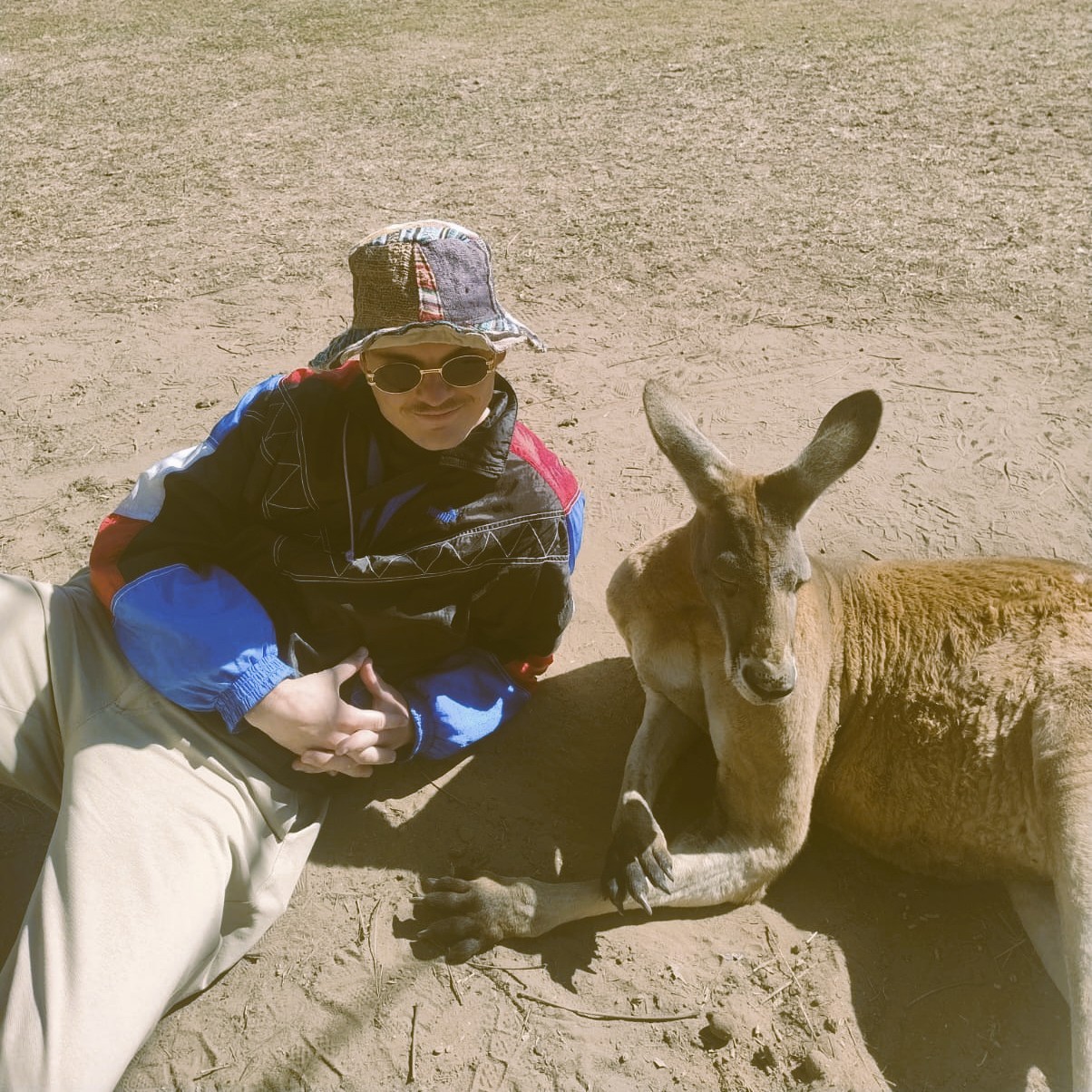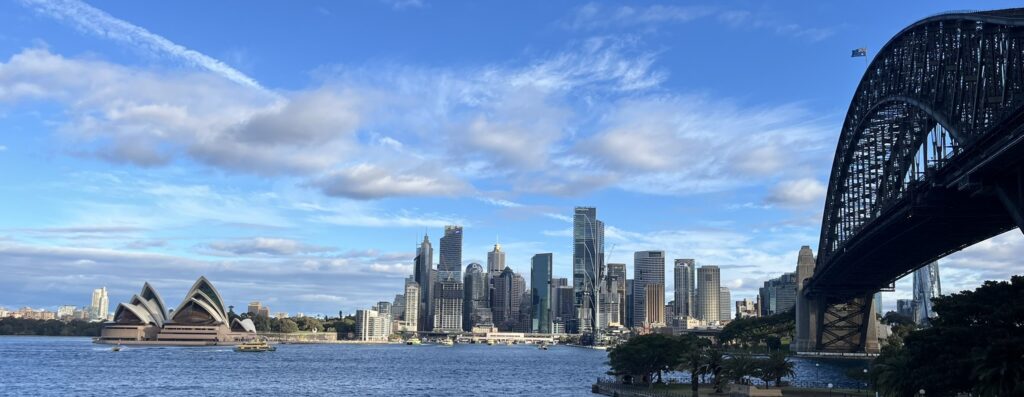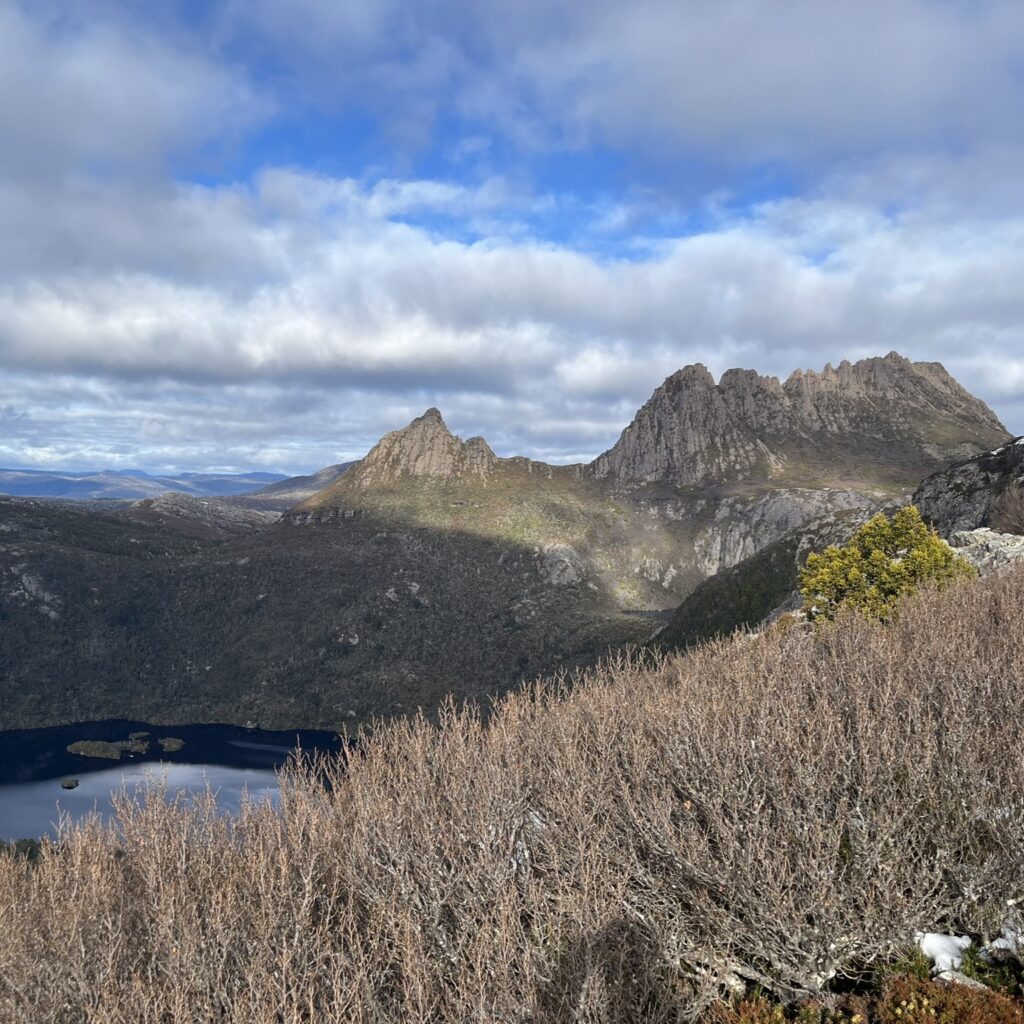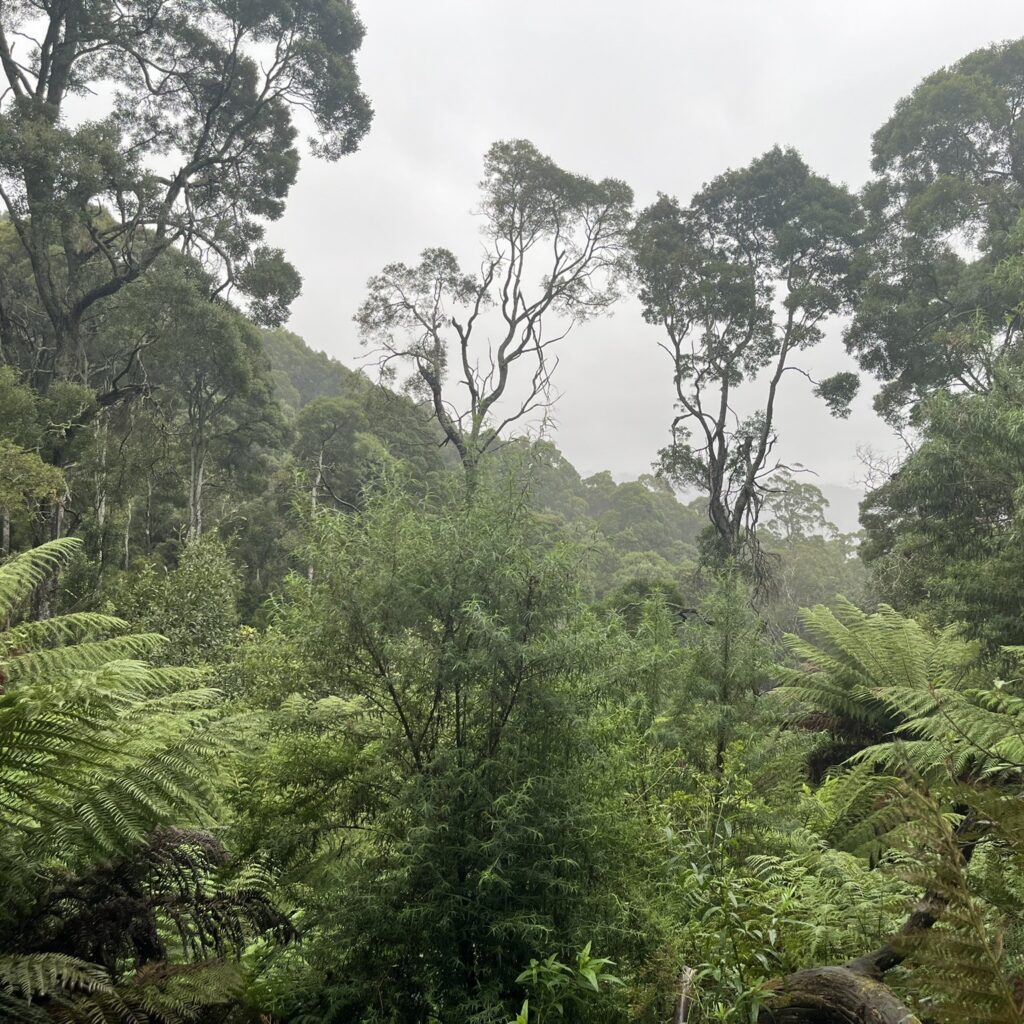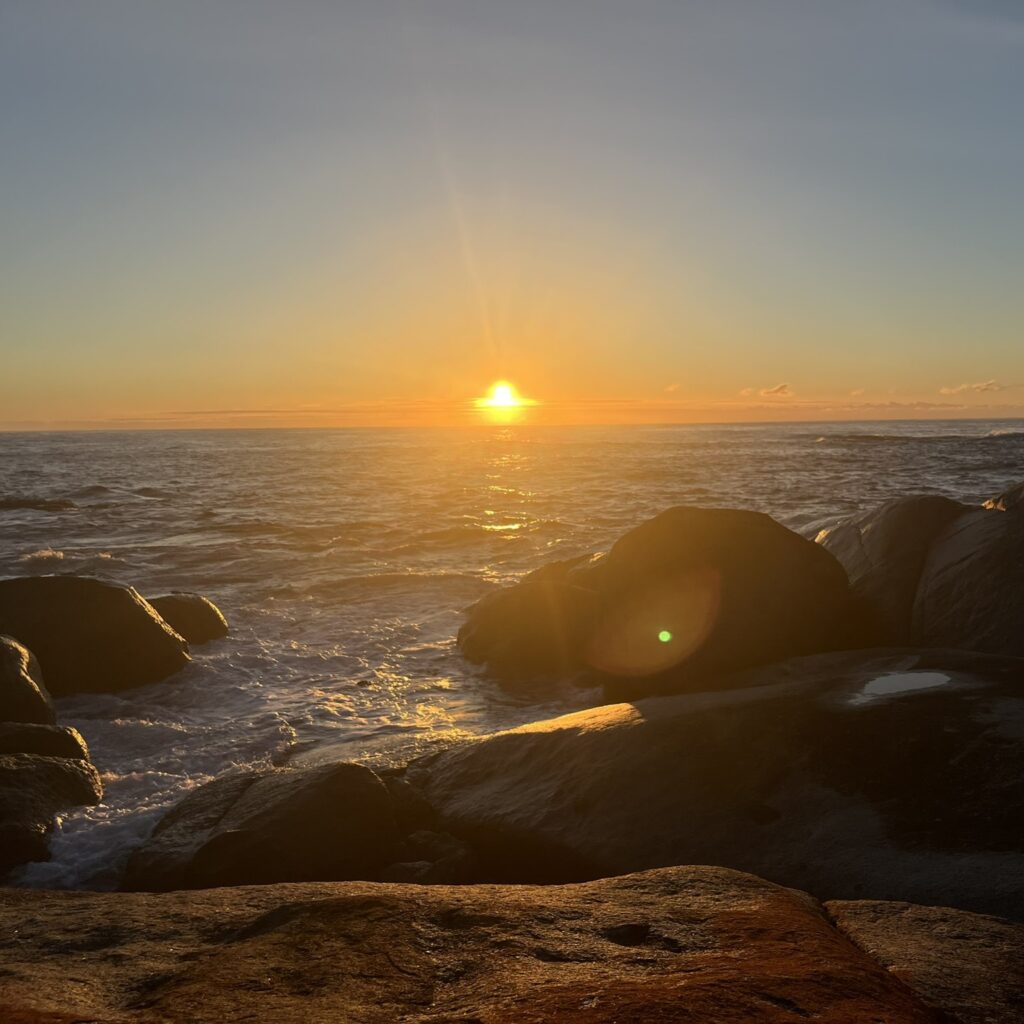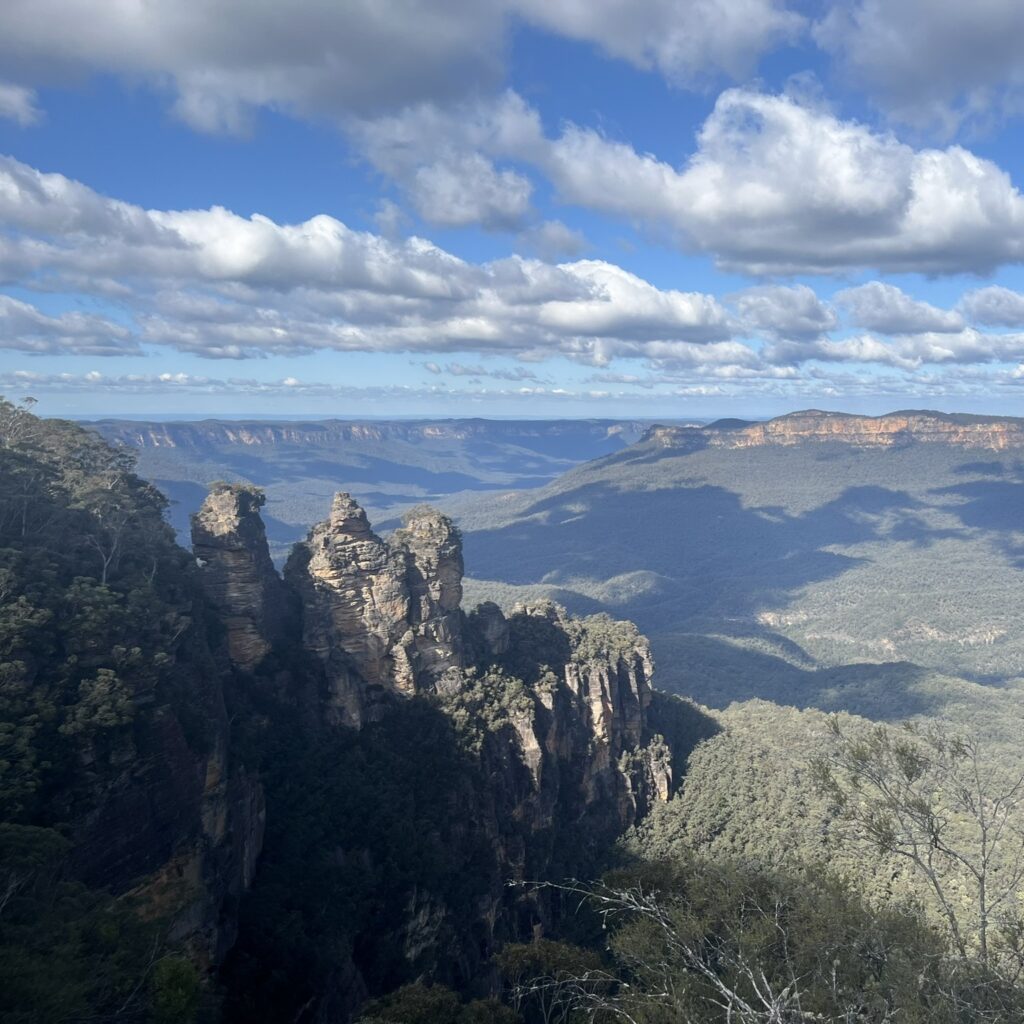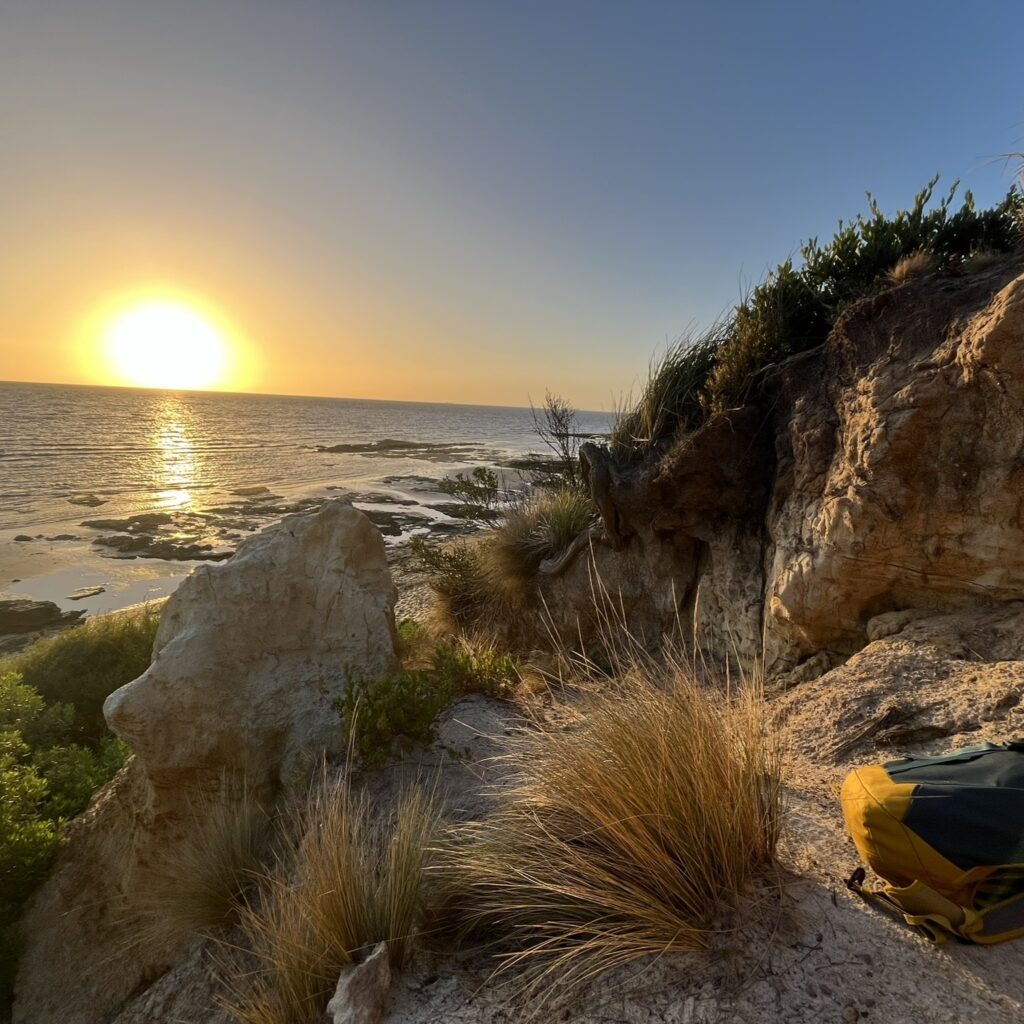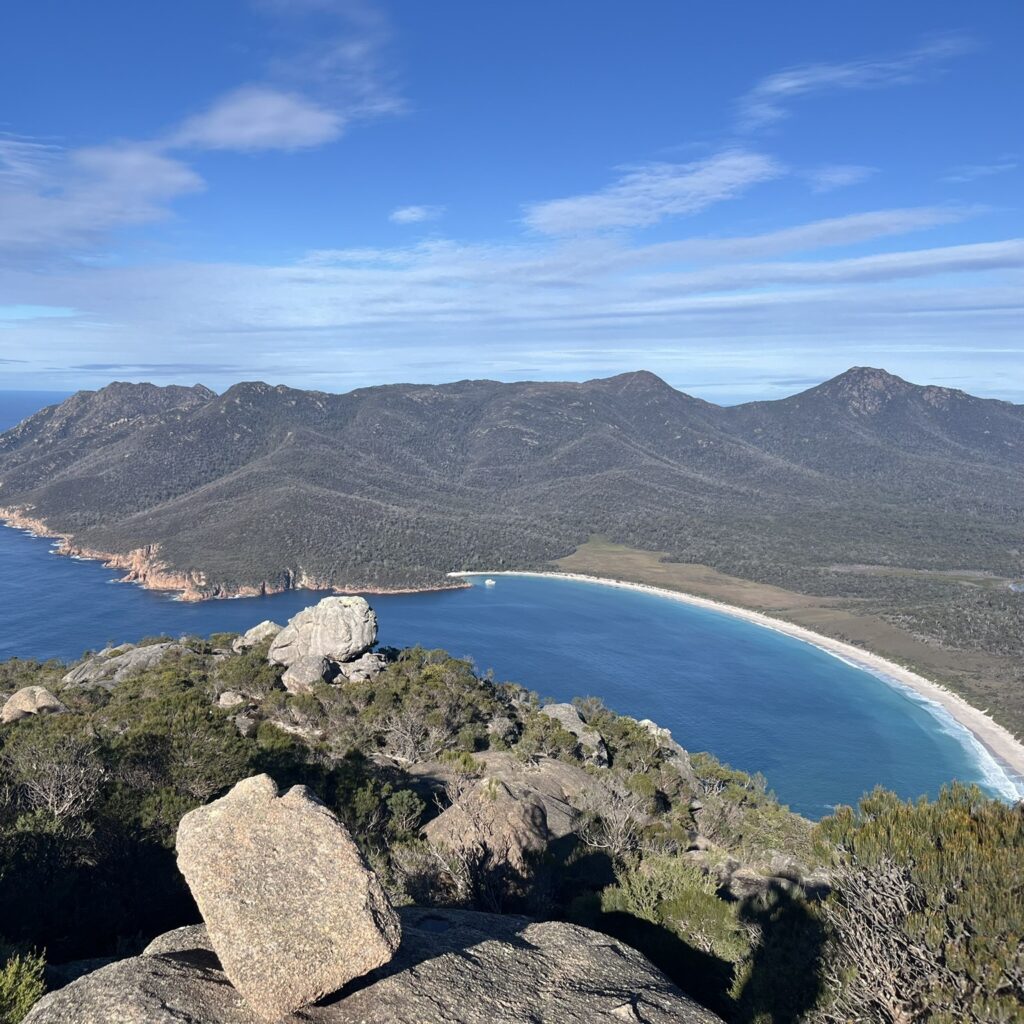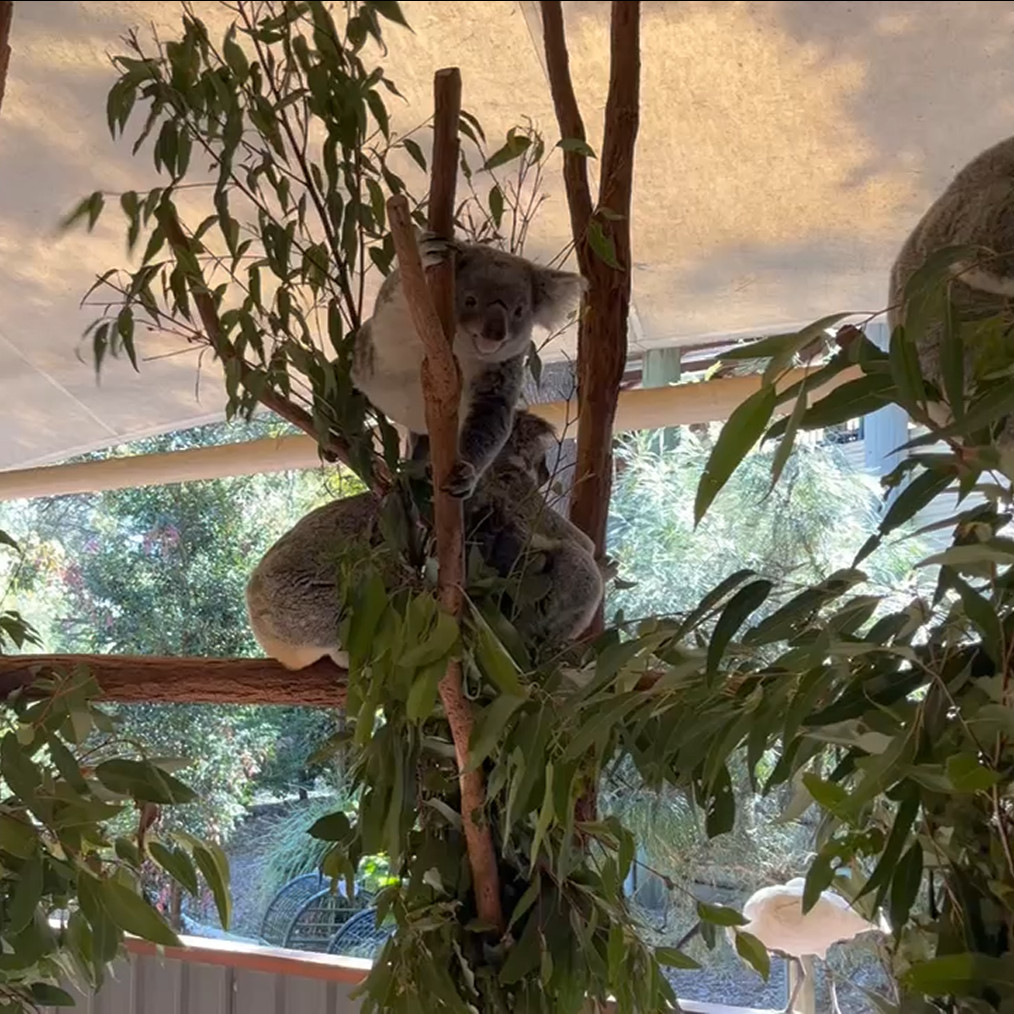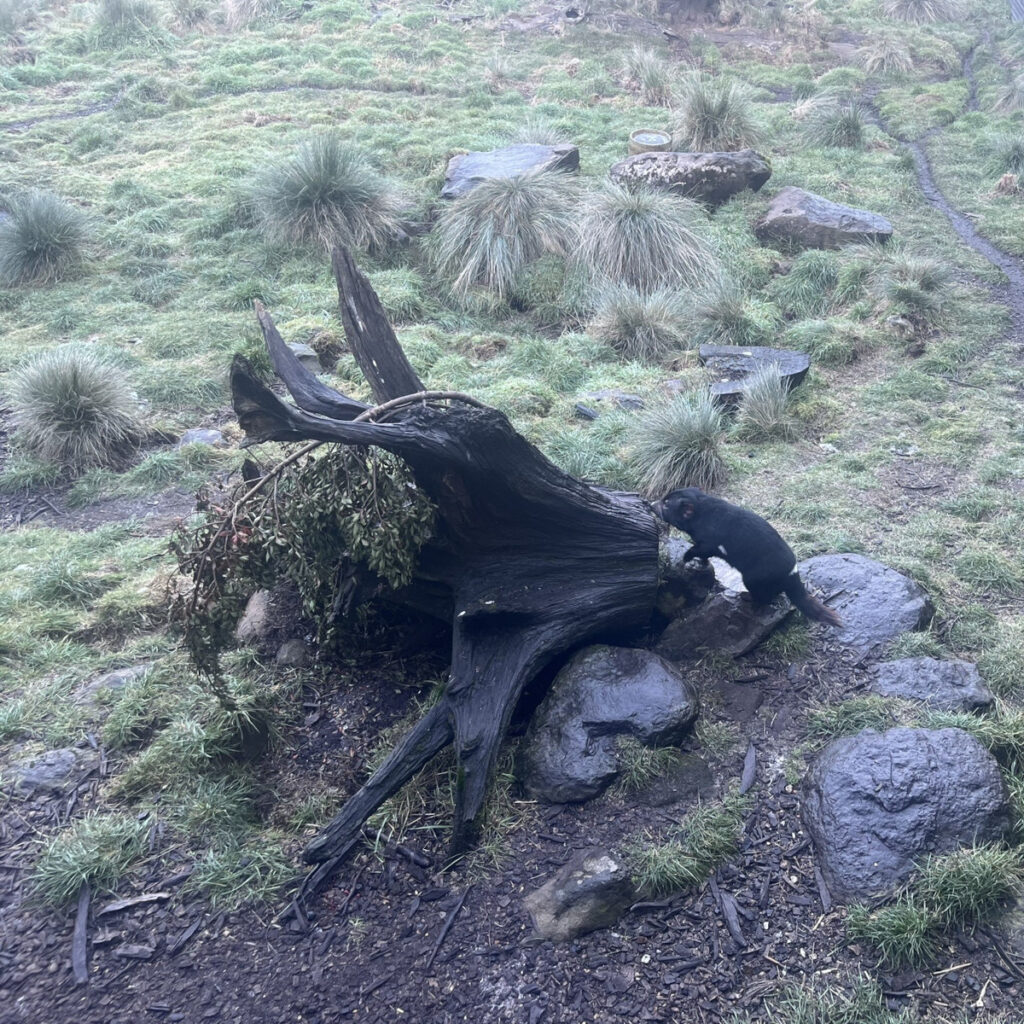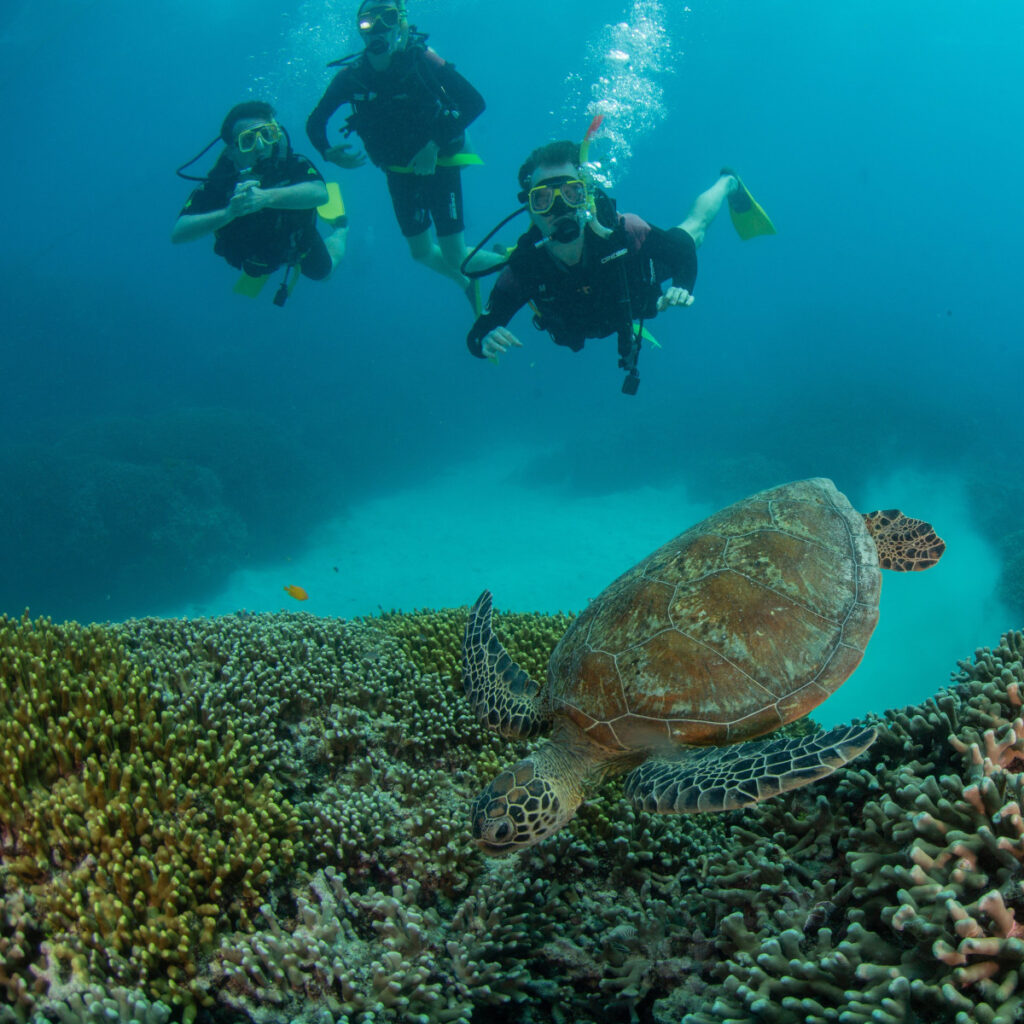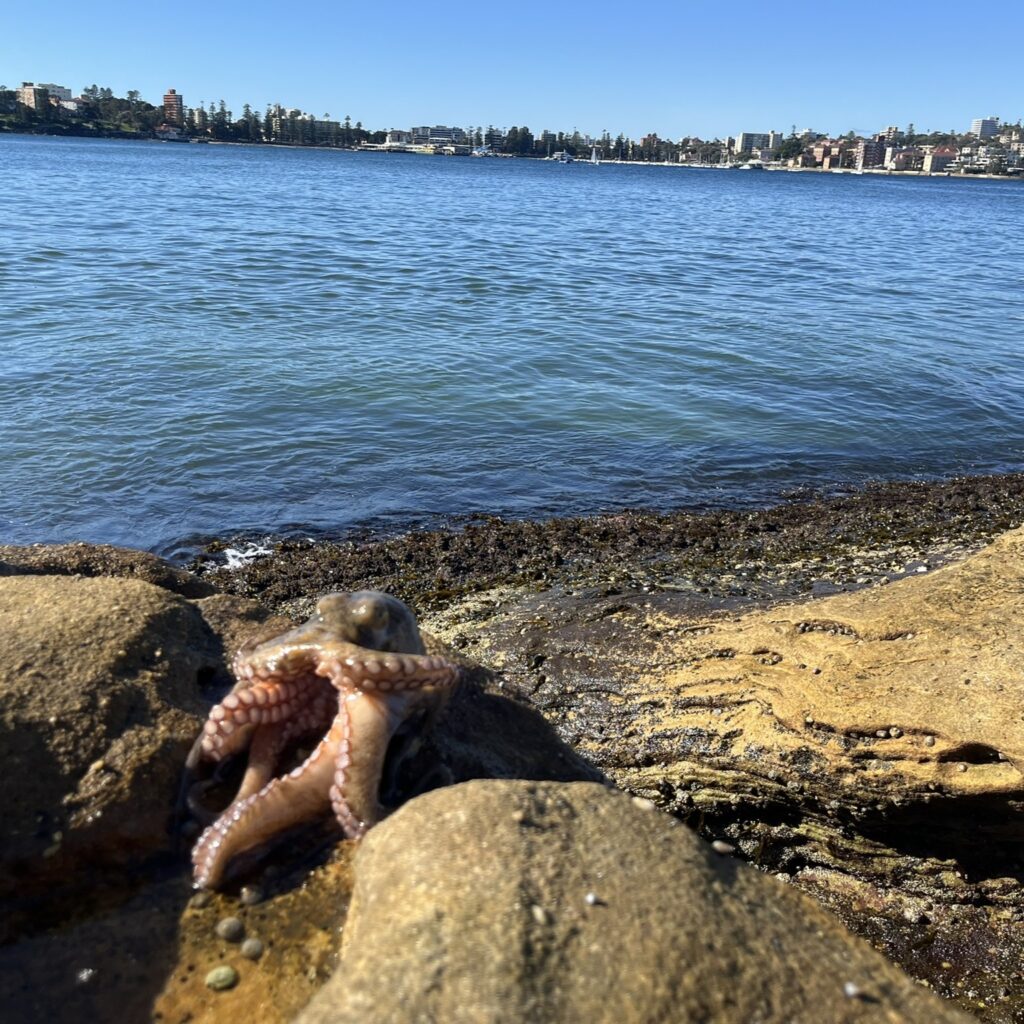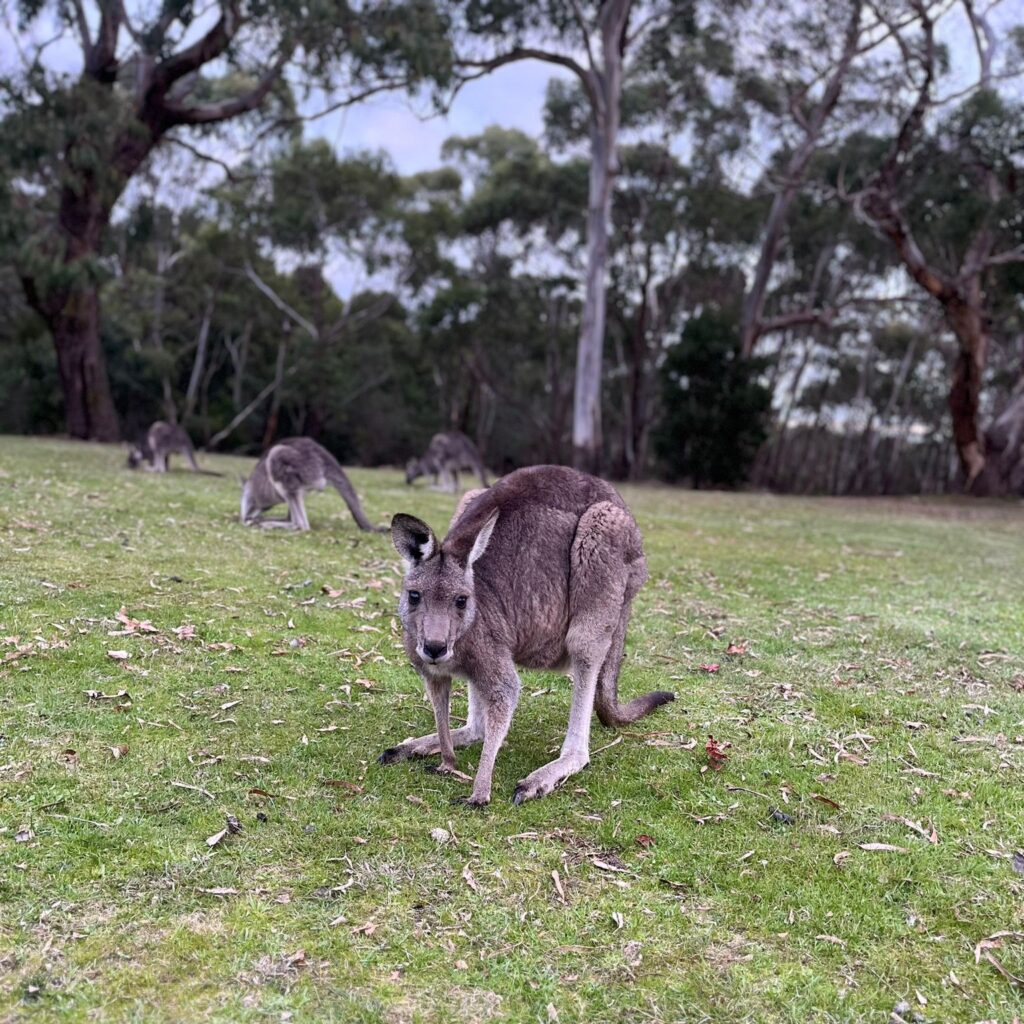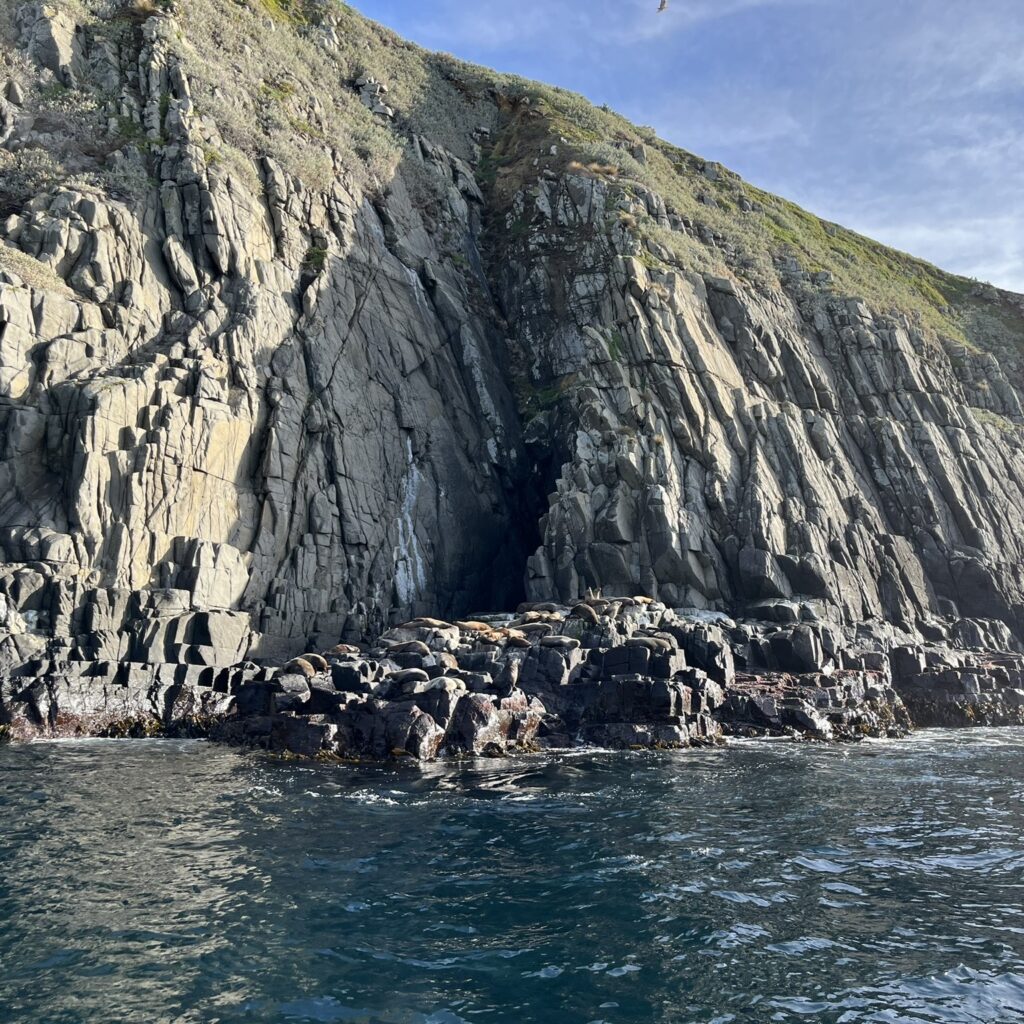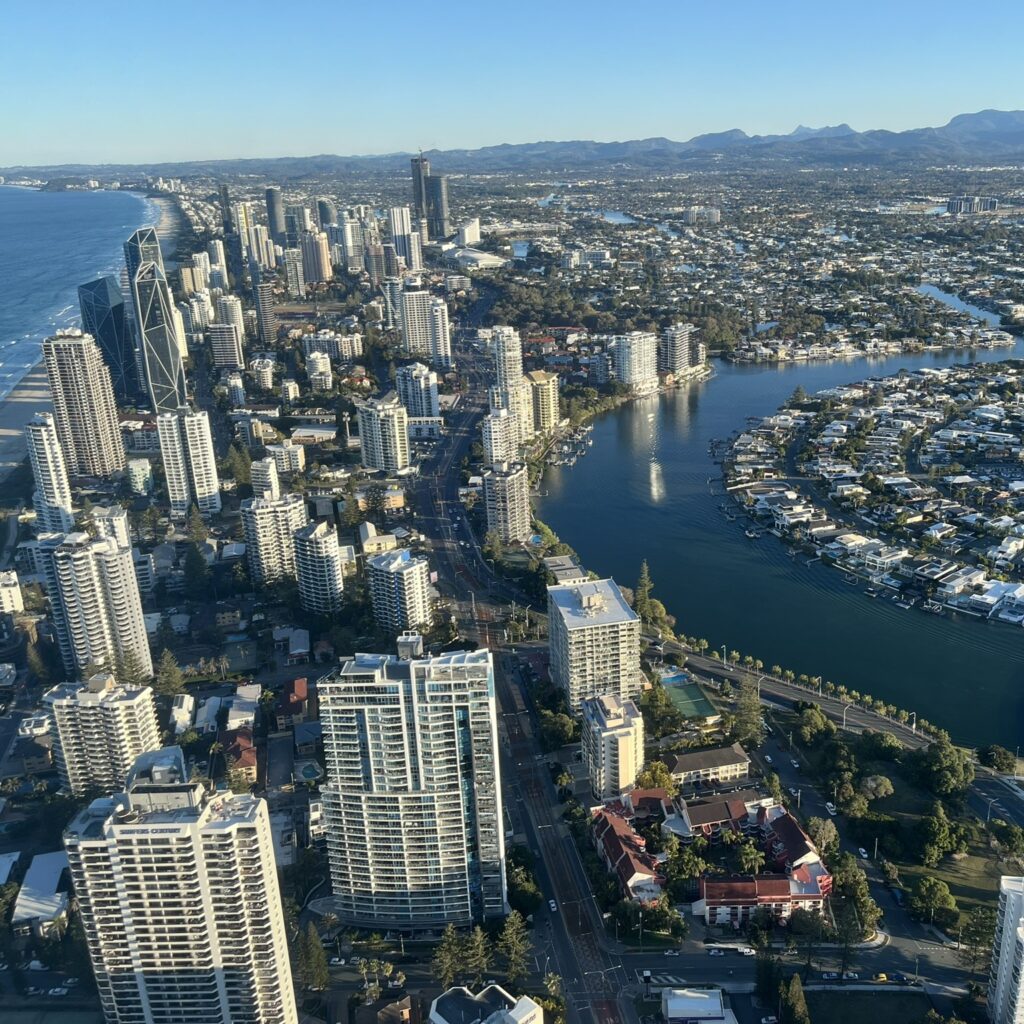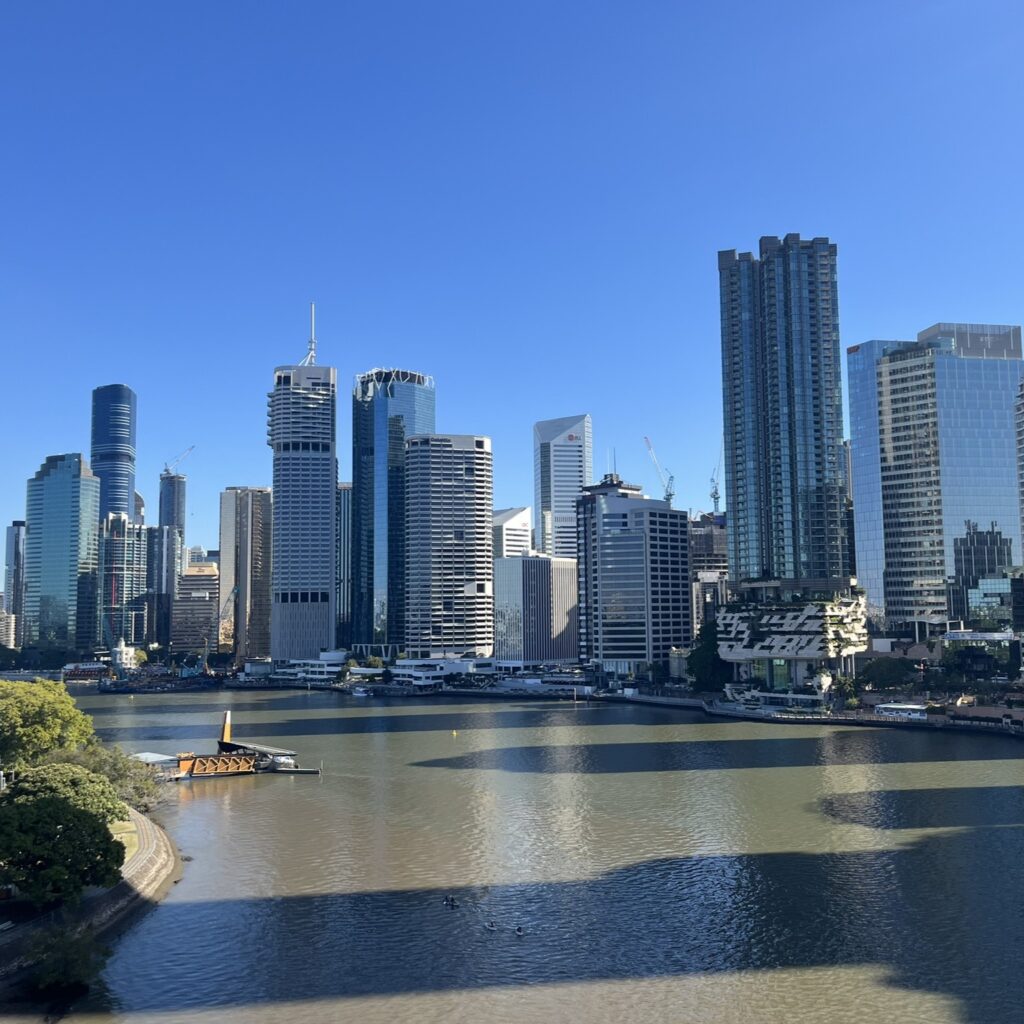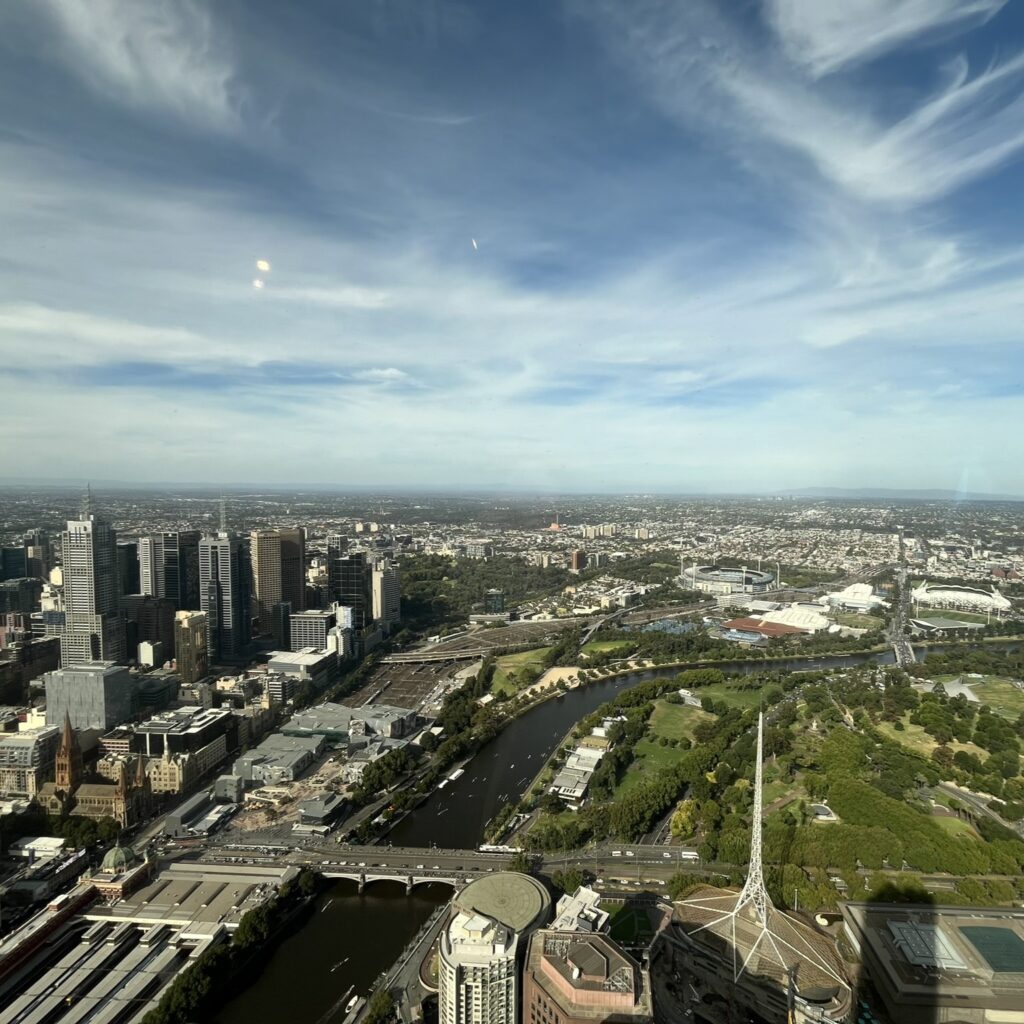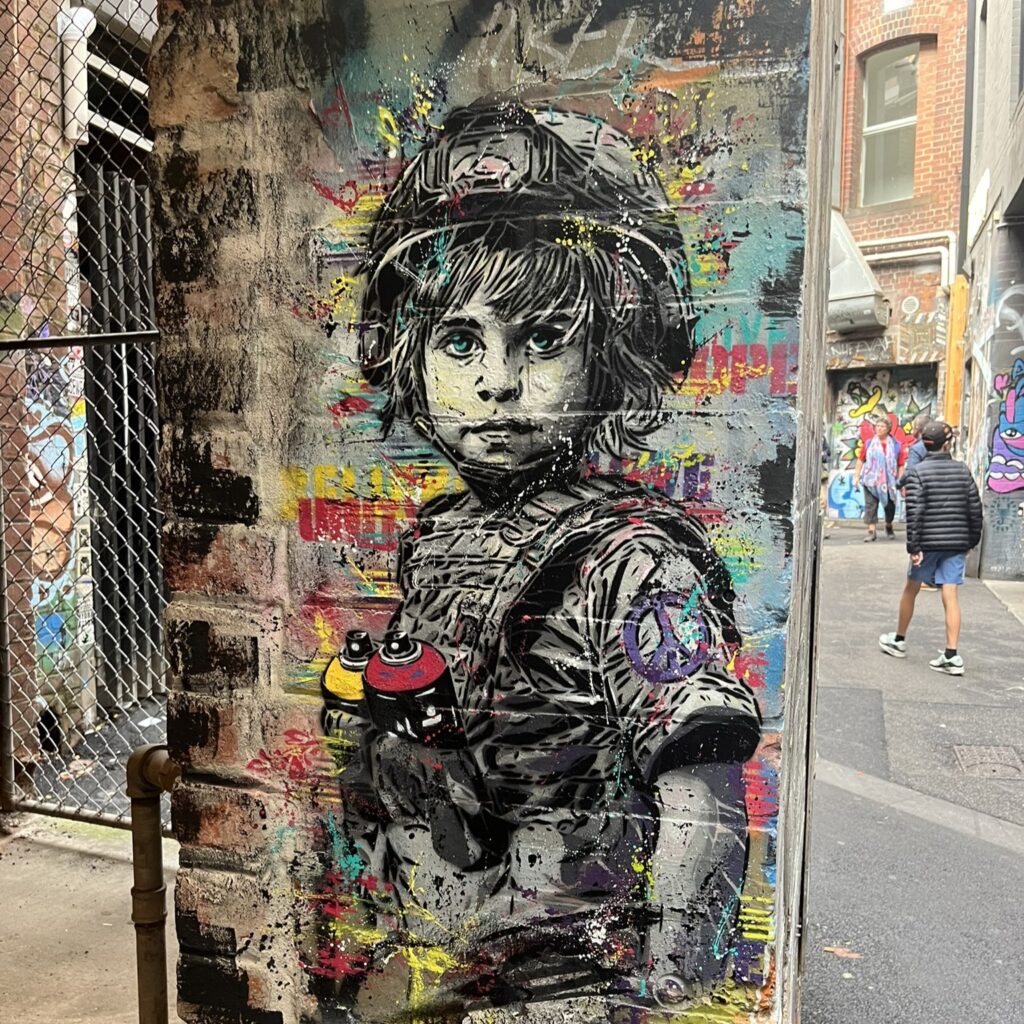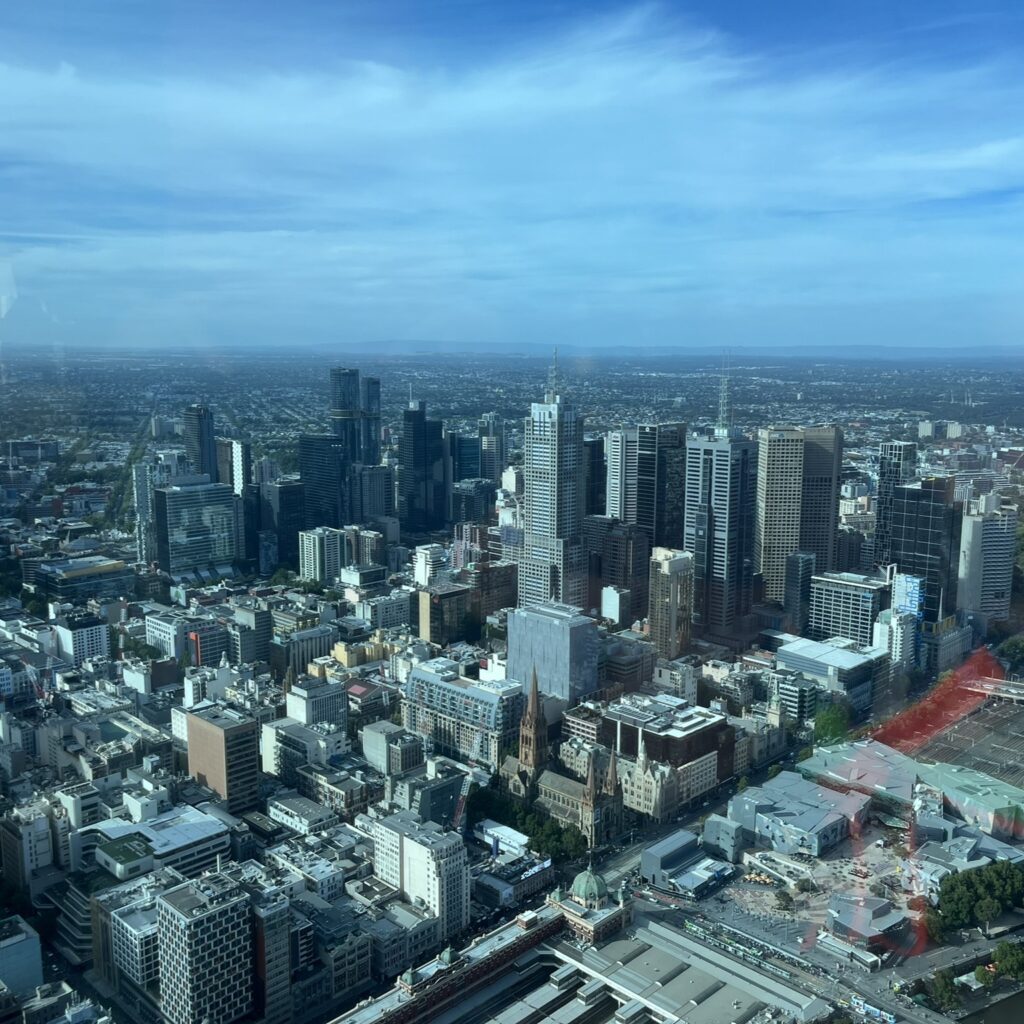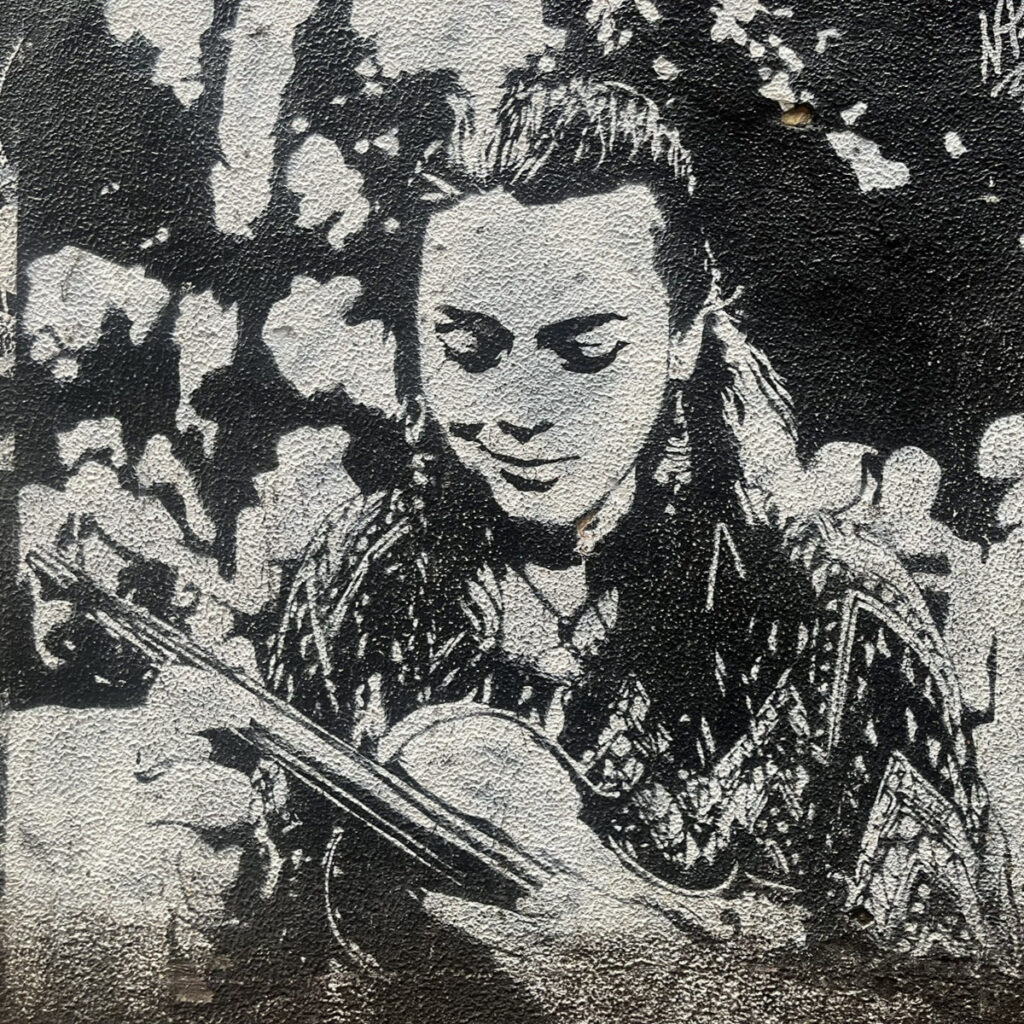This is a personal reflection written in a moment of clarity — not to convince, but to remind myself of what matters.
If it resonates with someone else out there, I’m glad, even if just partially. If not, that’s okay too.
The Plate and the Trap
I saw a plate the other day. It had a painting of someone with a gloomy face, dreaming of a tropical island – where the same version of themselves sat, with the same gloom.
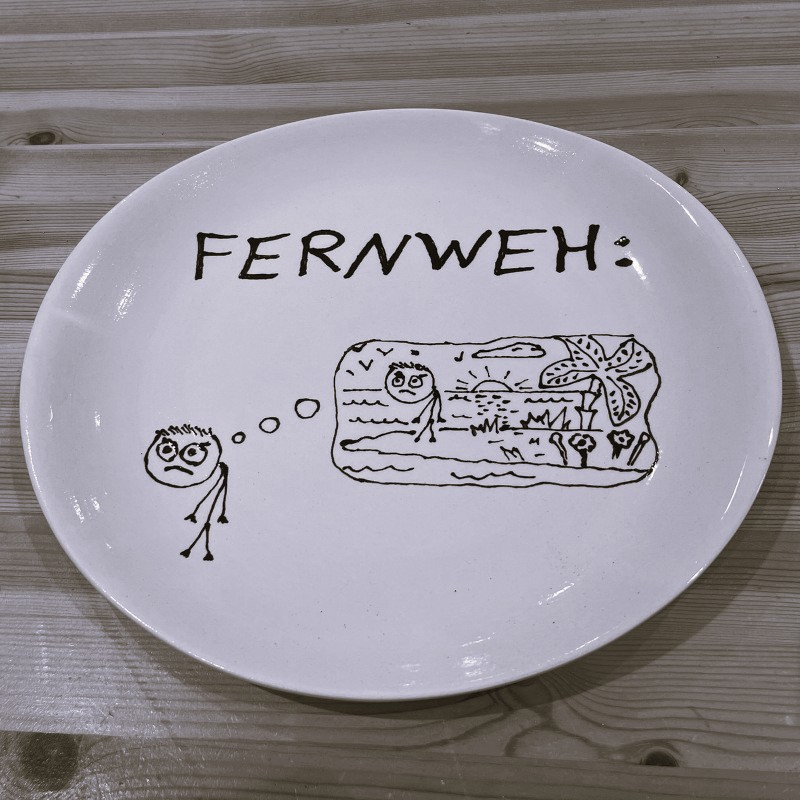
It struck me hard. That’s what we do, isn’t it? We fantasize about running away, as if place will fix the thing that is actually mental, spiritual, cultural.
We’re sick and tired of the constant noise in our cities. We’re fed up with the densely built-up concrete jungle. We long for clean air to breathe. We wonder why the status quo seems to be people rushing instead of people relaxing. We treat each other poorly, hiding behind facades. We’re afraid of wars and insane world leaders. We suffer from injustice. We’re sick and tired of this game of technology. We no longer want to run around. We don’t want to be another puppet on a string.
I just finished my Master’s. Everyone wants to know what’s next.
But honestly – I think “next” is the trap.
Listening Again
I’ve started listening again. To my mind, to my body and my soul. To the city and to nature. To people. To the earth. To my own nervous system and my heart.
Thereby I had a listen to this downtempo electronic song by Tober & Tober with a meditative and organic vibe, which resonates very well with my own vibe these days: Concepts of Words. The tune perfectly underlines my thoughts.
At some point, the song features a quote by Alan Watts:
Well, I have a sort of suggestion, and that is this: that, before we decide either to save the planet or destroy it, we pause for a moment of silence. I don’t mean that kind of grim silence which one observes when somebody says, “Such-and-such a famous person has just died and we’ll observe a moment of silence in his honor.” And everybody frowns and thinks very serious thoughts. That’s not silence at all! I mean real silence in which we stop thinking and experience reality as reality is. Because, after all, if I talk all the time I can’t hear what anyone else has to say, and if I think all the time – and by that I mean specifically talking to yourself subvocally inside your skull – if I think all the time, I have nothing to think about except thoughts. And so I’m never in touch with the real world.
Alan Watts (text sourced from https://www.organism.earth/library/document/intelligent-mindlessness)
Games of Words
At the end of the day, this is the truth, isn’t it? Nobody – yeah, nobody – knows what and why the fuck all this IS. It is sobering, but thoughts are just combinations of words in the endless space of language – and that itself is just such a thought.
I’ve been thinking, reflecting, listening, talking, discussing and reading through different perspectives and theories – different games of words, trying to capture all of this. Searching for the meaning and trying to make some sense of it all.
And I heard this poetry slam one day, making me realize I’m navigating this world wide web of information, this game of language, game of words – in circles.
Whose Thought Is It Anyway?
I stumbled across big thinkers, honorable geniuses and prestigious scientists.
All of them are trying to capture a universal truth.
But is that really what they are doing?
We attribute thoughts to thinkers.
Somewhat strange, as all of us know that it is a common phenomenon to say sentences at the same time or have the same thoughts in discussion groups. We’re having a lively evening with our best friends, fooling around, and suddenly two of us say the exact same thing. Or we’ve just prepared our argument in a philosophical discussion and hope to be the next one who can bring it up, but then we’re sobered when someone else comes up with the idea first.
We experience that strange lack of knowing when coming up with a thought, whether it has already been thought by somebody else or not. And if we do massive research and do not find that thought anywhere, we appear to be sure to be the first ones with that thought.
As a consequence, we get highly motivated and some of us write a book or a blog post, publish a paper or compose a song. Others found a startup, build a foundation or organize a club. And lots of us publish our everyday thoughts via social media or through chatting.
We talk about mind theft and copyright. We play games of power to make sure we are mentioned. We invented patents. We sue people who use similar thoughts. We hold back and disguise progressive thoughts because it is a competition. And we overshare lots of trite or even toxic thoughts of which we think are commonly acknowledged through the internet and in our daily conversations and actions, just to get our egos stroked and stroked again and again.
We seem so fond of our ego that we always want to have it stroked.
The Performance of Self
I find myself in situations over and over again, where I observe I’m hoping to come up as the first one with a real smart thought. And why? Because I want people to acknowledge the combination of words that I just created with the language module of my mind. And I want to win. Using all of my personal context as the foundation.
But what is my personal context? It is the entirety of my experiences, my knowledge, my feelings, my thoughts, my way of perception.
That model — my way of seeing, feeling, reacting — is what I call my ego. And it’s my ego that wants to win. To be seen. To be first.
We seem to play in a system of competition. Even holidays, social events, sports and reading can feel like a competition with social media nowadays.
Gamification of life.
Good or bad, but who really wins the game?
Letting Go of the Ego
For me, this was fun for a while, but over time I started to feel sick and tired, like I was stuck in a loop. And I felt some inner drive to deliberately step out of this.
Step back, relax, listen to the sound of the universe.
I just decided not to decide my next career step, because the word “career” makes me feel like throwing up.
When I hear that word, I am thinking of a good-looking CV, of a solid narrative, a master plan, an ego that makes sense to everyone. How funny it is that we even reshape our ego based on the company or project we are applying for. We prepare different versions of application letters and different versions of our CVs, depending on where we are applying. Different versions of our ego, in hope one of them will get stroked again.
I feel tired of the pressure to plan, to perform, and to explain myself. I felt fear of judgment – not only to be judged by an employer, but also by my family, everyday people, and friends.
I’m no longer interested in being “informed” just to signal that I am informed. Too much noise for me.
I’m no longer interested in letting a platform or systemic environment influence me such that I believe I need stuff. I like it minimal and calm.
I’m no longer interested in desperately craving partnered sex or a love relationship. I can enjoy sex alone and love is not dependent on another person.
I’m no longer interested in not wearing clothes with fringes or fabric pulls. Doesn’t matter to me.
I’m no longer interested in going to the gym and having a licked lean body. It’s way more fun for me to dance, to be outside and to play sportive games. And to eat cake.
And I’m no longer interested in showering every day. Makes my skin feel itchy and too dry.
And most importantly, I am no longer interested in judging people because they are judging.
A New Confidence
I asked myself who benefits from my fear of judgment. And the more I think about it, the more obvious it gets.
I realized that we tend to project these fears onto others as well. It can make us feel uncomfortable when a friend decides to do a sabbatical or someone seems to “just do nothing”, taking a break or just breathing. Or even if someone decides to make “one step down” in the “social class hierarchy”, e.g., from being a well-paid software developer to becoming a football trainer or baker. And we tend to cover that discomfort with judgment and worries, such as:
“If you just do nothing for a month, then one month will become two, two will become four, four become eight and in the end, you have ruined your chances and you’ll probably never work”, or “Not that you end up lost or unhappy”.
But I feel compassion for those saying such things, as I thought such thoughts myself and even worried about others in that way as well. And I realized that I actually felt envious, as they were actually listening to their hearts.
I realized that I don’t need to be accepted by anyone to feel confident. I even start to feel more confident the less I try to get my ego stroked and the more I do what feels right for me and say what I actually think, even if others will probably not understand, or judge me.
And I feel more confident the less I try to compulsively – almost insanely – leave my comfort zone.
Following my heart.
Questioning my inner judge, that was shaped by the outer judges and a system.
Learning to trust my inner desires and intuitions.
The foundation is a good vibration.
The Playground and the Race
I have lots of privileges being German, white, male, heterosexual, and healthy. It is a bit cynical, but I realized I do live in a first-world playground. At the same time, I know there are many, many threats and so much injustices in this world. And it makes me sad as I am beginning to realize that lots of toxic beliefs from my ancestors – from which I cannot completely detach myself either – have destroyed peaceful, abundant ways of living. I feel a deep sense of responsibility for this DNA-show here on Earth.
We have lots of options. There are tons of products, masses of jobs and a vast amount of possible activities.
It happened to me that I drowned in that.
I was constantly overloaded by information received through my pocket computer – no matter if it was a post by a friend or some news ticker update. I always wanted to be up-to-second, not only because of the fear of judgment, but also because I feared missing out.
I did sense an inner restlessness, but I didn’t question it as I felt it within others as well. It felt somehow normal.
But it’s a rat race.
Drowning in Choice
I didn’t just observe that phenomenon when using my tiny computer. I also observed it when planning my social contacts and time. Party here, meetup there, holiday here, project there. New people everyday. New philosophical theories everyday. So many thoughts, so little quality. So much noise. Underneath the noise: restlessness, junk, confusions and toxins.
People fearing the climate crisis. People fearing war. People fearing pandemics. People fearing death. People running around.
I feel like we tend to drown in noise and fear.
Back to the Roots, Back to the Heart
And we seem to forget the basics, our roots.
“Dig up the ground, plant the yam. Love on repeat.”, as Israel Vibration points out in Dig Up the Ground.
My truth is: it’s one and a half months now since I graduated and I have no satisfactory plan how to shape my ego for others. And I just started not wanting such a plan anymore. Earth keeps spinning. My mind starts moving. It works just fine.
Collective Fear, Collective Clarity
In theory, we know solutions to the current threats and injustices to humanity. But we’re missing collective clarity. We’re lacking a collective mental world model and understanding that would allow us to just collaboratively solve the problems. We lack agency. We’re shaped by information overload, misinformation, noise and ads of recommender systems, which take over the agency for us. But we need agency in a democracy. We must not be lazy or foolish, we must wake up. We’re in a meta-crisis. We’re trapped in hamster wheels.
We’re lacking a shared vision and beliefs. And we’re lacking clarity, togetherness and purpose. That makes it easy for insanely wicked world leaders who seem to have lost touch with their roots (maybe never have been in touch), trying to make us believe democracy has failed.
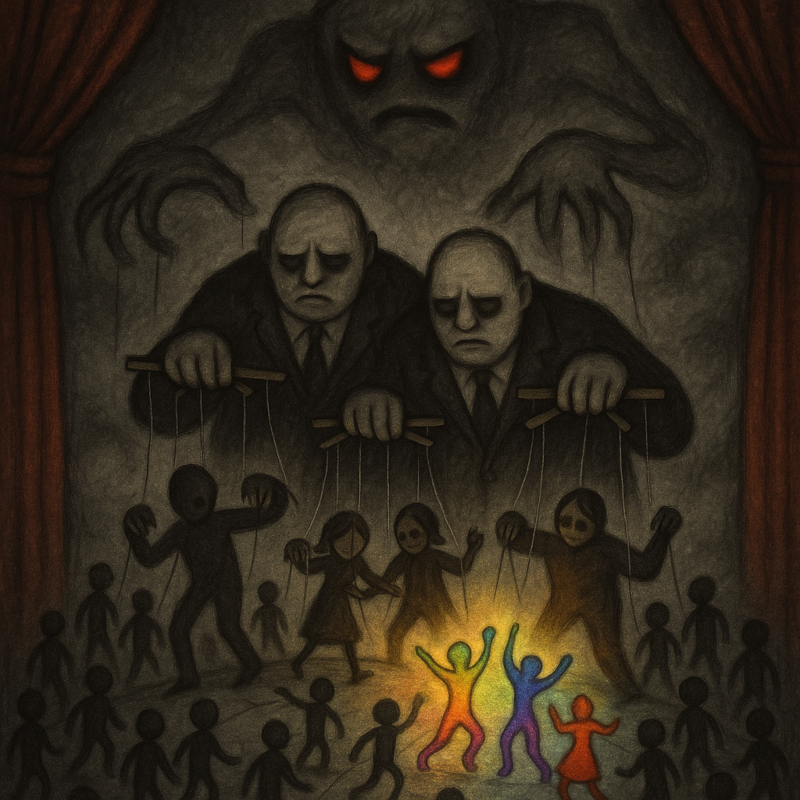
But we’re all intelligent!
Let’s just allow ourselves to step back and relax. And claim back our own agency!
We don’t need to play for anyone.
Beyond love, there seems to be nothing at all.
It’s not a Versus
Recently, I personally feel as clear as I haven’t in years. And I realized that clarity must not be confused with structure. For me, clarity comes from flow and vibration, supported by a good structure. From aligning with the cosmic rhythm. Aligning with the heart.
Currently, I’m drawn to simplification and creativity, less noise, more presence and more mindfulness.
Less explicit knowledge and logic. I mean, we invented computers to relieve us from that.
More intuition, more implicit knowledge and more wisdom. More alignment and embodiment. Feeling and thinking, dancing and breathing.
Being human.
Embracing spirituality.
Even science, for all its achievements, has not brought us a universal truth. The Enlightenment gifted us powerful tools — observation, reason, experimentation — but in the end, we still don’t know why there was a big bang, what came before it, if consciousness is a thing, or whether we’ve truly found the smallest particles of existence. We keep digging, but the mystery remains. And perhaps that’s not a flaw, but an invitation — to stay humble, to keep wondering, and to open ourselves to the truths that lie beyond logic alone.
Toward a Soul Revolution
I am really sure that our collective consciousness is directly intertwined with our individual ones. The change is inner and will manifest in the world.
The struggle is inner: Chicano, Indio, American Indian, Mojado, Mexicano, immigrant Latino, Anglo in power, working class Anglo, Black, Asian — our psyches resemble the bordertowns and are populated by the same people. The struggle has always been inner, and is played out in outer terrains. Awareness of our situation must come before inner changes, which in turn come before changes in society. Nothing happens in the >real< world unless it first happens in the images in our heads.
Gloria E. Anzaldúa, Borderlands/La Frontera: The New Mestiza, 1987. Recently seen in Vienna at WEST/WU.
Following our curiosities, not our fears. I’m sure, the good will come. And I’m sure as the sun will shine, that the constructive models will evolve and they will eradicate the destructive ones.
Spreading understanding, positivity, love and togetherness.
So that one day, we really all can live in peace, love and harmony.
Heaven on earth.
I know for sure now that I really want to help DNA in all of its manifestations. It has never been that clear. I want to help preserve it, fighting against entropy. And I know for sure now that for that purpose, I need to stay true to myself. In a system that consistently tries to lead me astray. A system which appears to be the most pressing threat.
I’m sure, we need to find balance within ourselves before we can bring balance to the world.
Probably, humanity is Noah for DNA and we need to find balance within us as a whole, too.
Let’s embrace the unknown and step forward with positivity and curiosity.
Let’s reclaim that which is ours. Let’s reclaim our agency and our freedom. All of us!
Let’s get the soul revolution rolling!
